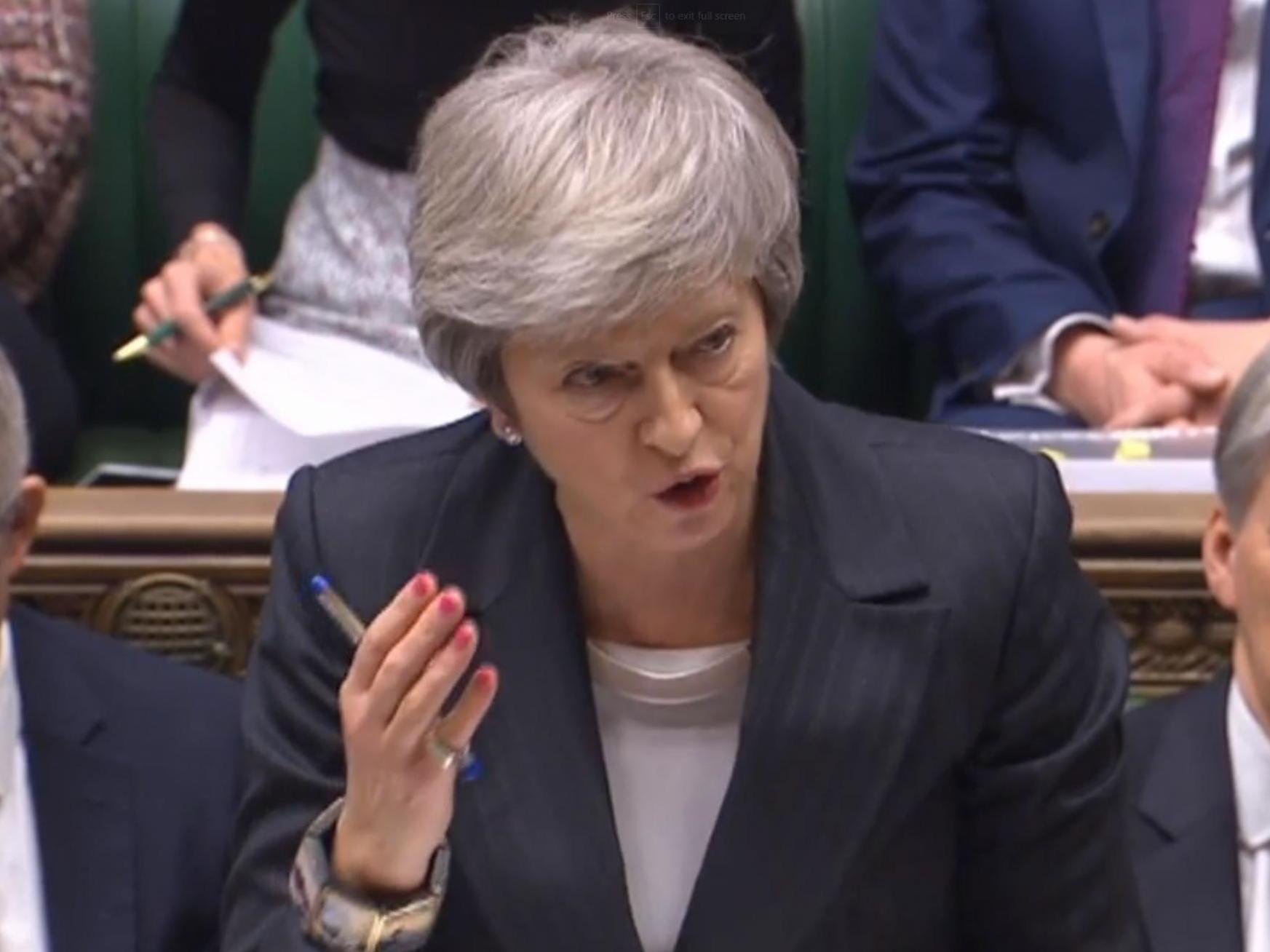Theresa May’s offer to Eurosceptic MPs of a backstop veto is not what it seems
Analysis: As the PM tries to talk round Brexiteers, chief political commentator John Rentoul looks at why this latest attempt to force through her deal probably won’t work


The prime minister is trying to sell her Brexit deal to doubting Conservative MPs by offering them a “parliamentary lock” on the bit they don’t like, the backstop.
Let’s remind ourselves what the backstop is and why they don’t like it.
It’s a legally binding guarantee to keep an open border in Ireland after we leave the EU. Tory MPs don’t like it because we can’t get out of it except by signing a permanent trade deal that guarantees the same thing. Even Jeremy Corbyn has criticised it because we have no way out of it except with the agreement of the EU.
Now she could tell her MPs that avoiding a hard border in Ireland is something to which the UK should be committed anyway. But a lot of them don’t agree. They think it would be a price worth paying for a “real” Brexit – although they tend to argue in public that a hard border could be managed by technology so no one would notice it.
So, instead, Theresa May is telling her rebels that they can have a veto over the backstop, should it ever be needed.
This is spin. She has written into the withdrawal agreement a choice at the end of the transition period, the end of 2020. If the long-term trade deal with the EU has not been negotiated by then, and it seems likely that it would not have been, the UK would then face a choice between the backstop or a one-off extension to the transition period. It would be inconceivable that any government would make that decision without consulting parliament, so May’s “offer” is no more than a statement of the obvious.
And it does not get round the fact that the backstop will still be the fallback option. If, in 2020, the UK opts to extend the transition period, at most by two years to the end of 2022, and if when that expires there is still no long-term trade deal, then the backstop will come into effect anyway.
The only way out of it would be for the UK to repudiate the withdrawal agreement. This is an international treaty and we have a sovereign right as a nation to pull out of any treaty, but that would have serious consequences. Any country that goes around binning international agreements would become, in effect, a rogue state, and other countries will be wary of signing new deals with it. If we did that, it would not be possible to negotiate any kind of trade deal with the EU.
This was what many journalists and Brussels officials thought the prime minister meant by her offer: she would be giving MPs the chance to repudiate an agreement to which they had just agreed. That is the trouble with spin. If you are trying to pretend something is what it is not, people might assume you mean something else altogether.
I doubt that this attempt by Theresa May to persuade hard-Brexit MPs to support her deal is going to be successful. She would be better off pointing out to them that they do not have the numbers in the House of Commons to push through a no-deal Brexit, so they had better support her deal or face the prospect of Labour forcing her to put it to a referendum, with remaining in the EU as the other option.
She should warn them that the Brexiteers are in danger of scuppering what they want most.
Join our commenting forum
Join thought-provoking conversations, follow other Independent readers and see their replies
Comments